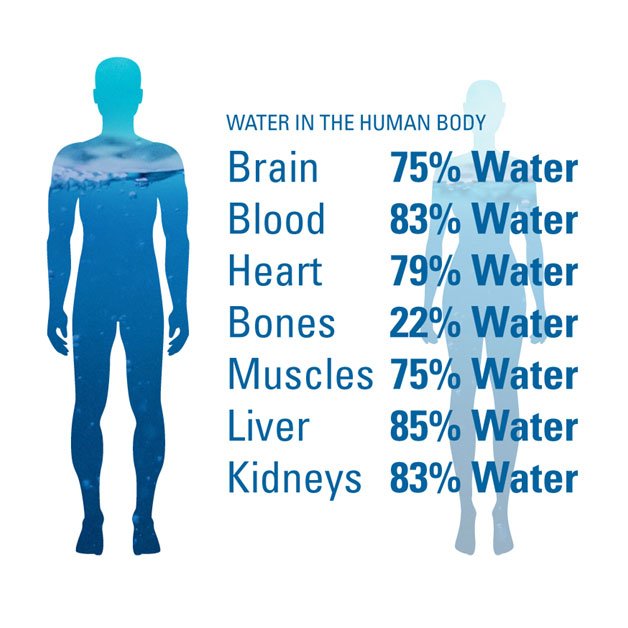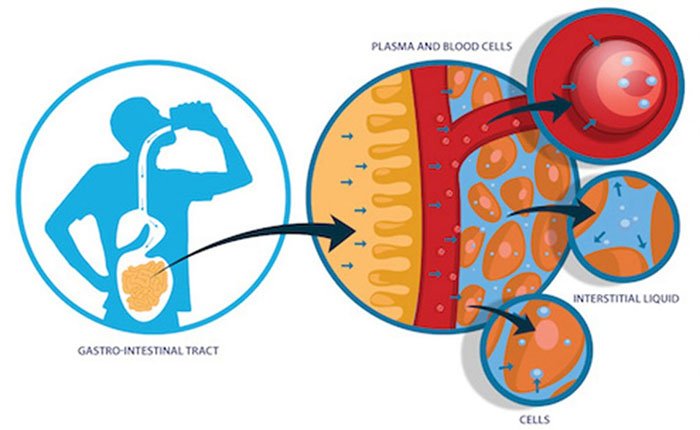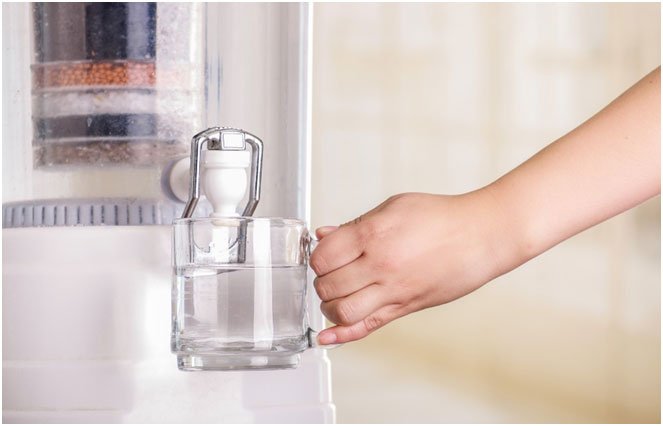Water is everything
Could you survive without water? If not, then this makes water one of the most crucial elements necessary to survive. With such an important role in our life, we need to understand the role of water, the requirement of our body for water, and its usage criteria for the human body
Firstly, we need to make it clear to ourselves that excess of nothing is good for our body, even if it is a beneficial thing such as water. Water is one of the main requirements of the plants’ body and animals’ body including human beings. But that does not mean that it should be used excessively. The excessive use of water makes it harmful for our body.
Water in Human Body
The Human body is composed of 90% percent. This is shocking right? Well, even if it is, it’s true. We all know that the whole Human body is composed of trillions of animal cells and the composition of an animal cell contains 70% water in the cytoplasm. This makes the human being composed 70% of water. After knowing this fact, you are now in a position to better realize the worth of water for the human body in the appropriate amount.

Water in Cells
All the body functions in the human body depend upon the activities going on in the cell which is the basic functional unit. So, for the overall activities of the cell to function properly, water is needs. When we drink water, it gets into the stomach and from there it gets absorbed into the bloodstream. The blood is distributed to every cell of the body. When the blood reaches the cell, it provides the cell with water and all the necessary nutrients absorbed into the bloodstream such as proteins, fats, lipids, nucleic acids, etc. These are provided by the food we ate.

So, the cell absorbs the water it needs for normal functioning and uses it. This process is repeated each time because the blood is in a constant flow to the cells.
Cells also need water to maintain the level of salts in the cell. To maintain a normal balance of salts and water, cells absorb water when the salt content becomes high.
Some Uses of Water in the Human Body
Apart from this, water is need for a variety of other purposes too in the Human body:
- Water is the main solvent for all the liquids in the human body such as blood, pancreatic juice, Stomach juice, and other chemicals in the human body.
- Water is needed by the kidneys to help remove the waste material from the human body i.e. urine.
- Water is needed by the stomach to absorb food and help in the process of crushing, grinding, churning, and producing HCL in the stomach.
- Water is needed as muscle fluid by the human body.
How much water is needed by Human Body?
With such a significant role in the human body, the question arises of how much water we should drink daily. What’s the required volume of water for our body?
Consuming less than the required amount of water can lead to:
- Water shortage in the body and an increase in body salts.
- It exerts pressure on kidneys when they have to filter the excretory material of the body using less water.
- The urine produced in this case is concentrated and dark in color.
- The blood also becomes thicker and it creates problems in blood flow
- It can cause blood clotting in the arteries.
Similarly consuming more than the required amount of water can cause:
- The salts in the body cells to be reduced leaving the cells in a hypotonic state with high water content and less salt.
- The kidneys have an excess amount of water and they constantly produce urine in dilute forms to excrete and expel the extra water.
- The blood becomes thinner causing high blood flow which can be the potential source of problems such as High Blood Pressure.
- It can also lead to rupture of arteries or veins in the brain i.e. Brain Hemorrhage.
How much water to Drink Daily?
So, what is the optimal amount to drink daily? Usually, doctors and nutritionists recommend drinking 8 to 12 glasses (8 ounces per glass) of water per day but this varies from person to person and depends on the circumstances too.
Water consumption hugely depends on human body weight but it also depends on other factors such as gender, the environment, activity level, and eating habits.
For the body weight, the criterion is
Minimum: 0.5ounce/pound
Maximum: 1ounce/pound
So, if you have body weight of 140 pounds so you’re advised to consume:
70 ounces to 140 ounces of water, daily.
But it varies on certain other factors such as
- Temperature
- Activity Level
- Eating habits
For example, if you have a high activity level and you’re living in a hot climate, you are consuming more proteins, and then it may be suitable for you to drink up to the maximum level as per your body weight criteria. But, if you are someone who lives in a cold climate, and you have a sedentary lifestyle, and you’re eating high carbohydrates diet, then in this case you should drink an amount near to half an ounce per pound of body weight.
Is RO water good for health?
With the increasing population and the increase in water usage, the amount of freshwater is diminishing each day. This has made people shift to consuming water that is treated by RO (Reverse Osmosis) plants.
There’s some debate on whether it is safe to drink RO water or not. In countries such as the United States and the European countries, the tap water may be considered an alternative to the RO water because the RO water removes calcium and some other minerals from the Water which is pivotal to human life but in countries where tap water is not clean, it is advised to use RO water as it is purified and filtered from the contaminating particles and nitrates, etc.

Some commercial RO plants add minerals to the filtered and purified water which again makes it more favorable than tap water.
Useful Nutrients in the Water
Water, if not filtrated by the RO plant, contains many of the organic and inorganic solids existing naturally in water due to various reasons.
- The inorganic salts are mostly calcium, magnesium, sodium, potassium, etc.,
- And, some organic particles as well.
Having some of the useful nutrients there are some Solid contaminants in water are harmful for health. These are called Total Dissolved Solids (TDS).
| TDS | Safety level |
|---|---|
| Above 150 and less than 300 | Excellent for drinking |
| Between 300-600 | Good |
| 600-900 | Not good |
| 900-1200 | Poor |
| Greater than 1200 | Unacceptable |
The water must have a low TDS level to remain fit for consumption
The alkaline and acidic levels of water are also to be kept in mind while consuming water.
Below are the pH levels
| 6 or below | = | acidic |
| 7 or below | = | neutral |
| 8 or above | = | alkaline |
Where should we use RO water?
RO water should be used where water quality is not upto the mark, means Where TDS value is greater than 900 or water has acidic properties and not anywhere else.
Before going for a RO filter, one must find out the quality of surrounding or home water. In RO, for taking 1 litre of water purified, we see 2 to 3 litres is rejected or wasted.
If there is only physical impurities in the water then a simple candle filter is Good.
For biological impurities ( bacteria, viruses ) – UV filter is good.
WHO ( World Health Organization ) warning
RO is only useful when there is chemical impurities in water.
Consuming RO water for longer period of time or even a few months can be more dangerous with serious side effects. It has been scientifically confirmed that regular use of RO water causes more body harm than most contaminants in tap water.
NOTE
If you want to know about the quality of your water then there is a test Called ( BISI0500 ) must be done. Or if you want to test it at your home then you can use TDS meter, pH test liquid and colour Strip.